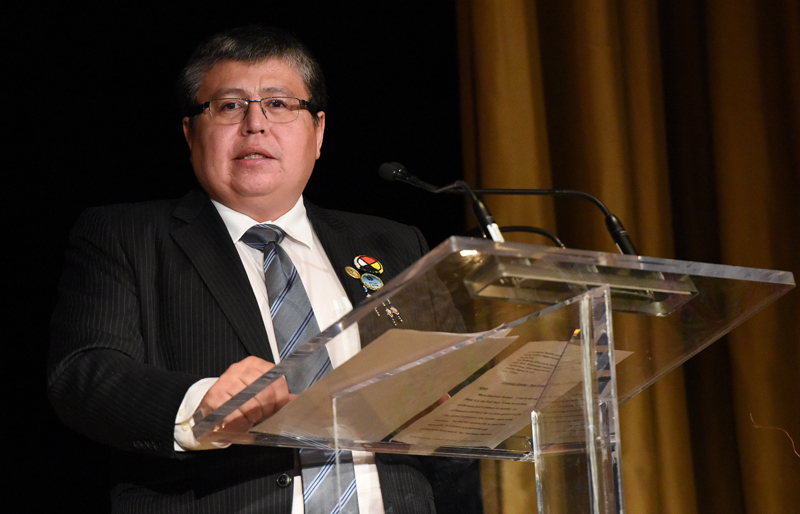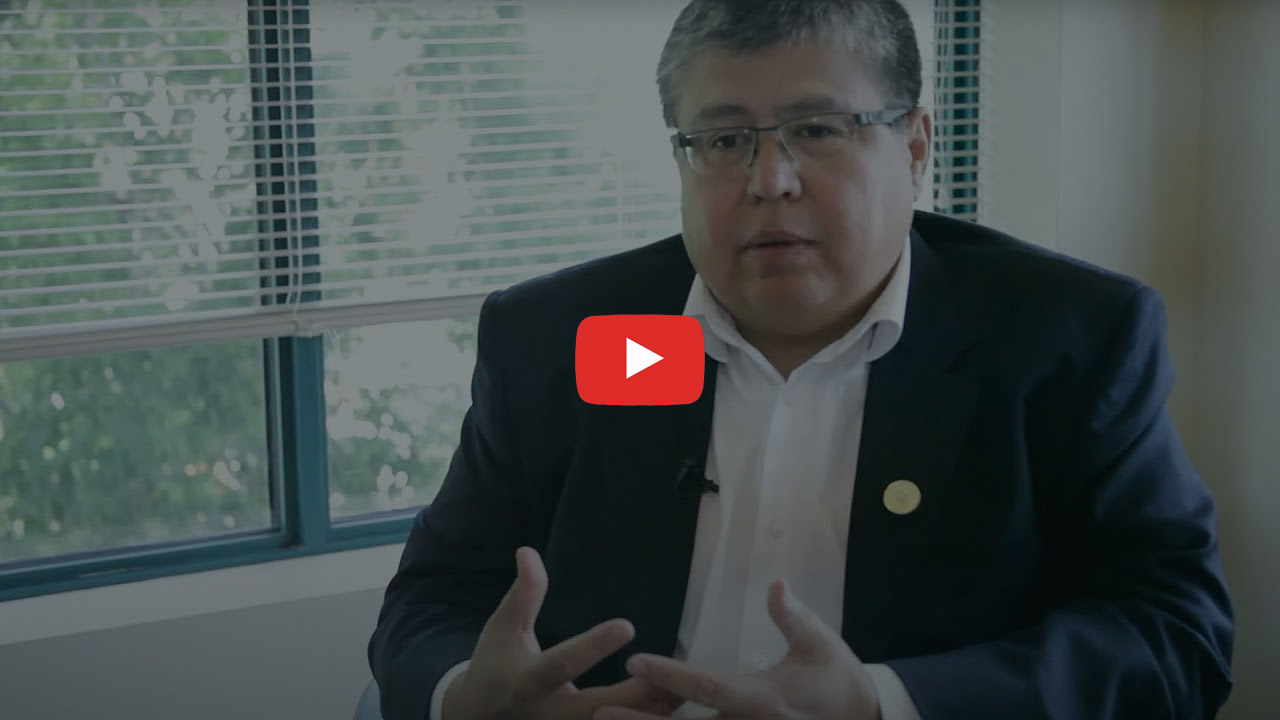
Terry Goodtrack: A leader in finance education for Indigenous people
In his role as president and CEO of AFOA Canada (formerly Aboriginal Financial Officers Association of Canada), an Ottawa-based non-profit organization that provides finance and leadership training to Indigenous people across Canada, Terry Goodtrack has a good opportunity to see the challenges facing these communities as they work toward a more prosperous future.
“When I think of good business, what I think about is inclusivity. That’s what business in Canada should be, inclusive of Indigenous communities, Indigenous individuals,” he says.
Born for business
Goodtrack himself had early exposure to business and finance. He grew up on a reserve called the Wood Mountain Lakota First Nation. “Our family is a farming and ranching community — that’s what we did and we still do to this day,” he says. “They call it agribusiness for a reason. It’s a business, is what it is.”
After graduating from the University of Regina in 1989, Goodtrack spent about 10 years in government in various positions and obtained a graduate degree in public administration from Carleton University in 1997. He then worked for several Indigenous organizations and earned his accounting designation before joining AFOA in 2011. “With every position I’ve been in, your skill set in finance is key,” he says.
Building blocks
AFOA Canada has three key certification programs. One of them is the Certified Aboriginal Financial Manager (CAFM), which provides a pathway toward the CPA Canada Advanced Certificate in Accounting and Finance, and ultimately a CPA designation. AFOA Canada also holds workshops on what Goodtrack calls “key niche areas” such as strategic planning.
Last year, AFOA Canada held an international conference that attracted participants from similar associations in the U.S., New Zealand and Australia. “We have very similar challenges but the regulatory environments might be different,” says Goodtrack. “So we can learn from each other. For example, the Maori were able to settle most of their land claims in New Zealand and create trust funds that they use for education and economic development projects. This created a need for Indigenous professionals in management and accounting. I remember being at one of their conferences in New Zealand a few years ago and having breakfast with a trust manager. He mentioned that after breakfast he was going to see one of his projects, a dairy farm created from their trust fund. Of course, I come from the ranching industry and at one time we had as many as 300 head of cattle. So, I asked him how many cattle he had. He replied, ‘We have 50,000.’ I said, ‘What?’ And he said, ‘Yeah.’ And they sell their products all through Australia and up through Asia. So, it just shows you that by creating wealth and prosperity, you also create a need for management and financial professionals.”
More savings, more money, more programs
Goodtrack is quick to point out that what he calls higher-performing communities, like that of the Maori , don’t spring up overnight. “A vision for the community must first be created, then consistent leadership objectives have to be in place over a long period of time,” he says. “These are 20- or 30-year journeys.”
In the meantime, some communities in Canada have already embarked on the road to high performance, thanks to finance and management training. Goodtrack points to the story of one AFOA member who was elected as chief in her community in Manitoba. “Since she had taken courses at AFOA and understood financial management, she was able to bring more efficiency into the organization — which, in turn, allowed her to save on costs and free up money for other uses. So, when community members asked her where she had got the money to do new programming, she would reply that the money had always been there — it just hadn’t been used in a constructive way.”
Watch the video to learn more about how Goodtrack’s work demonstrates the Canadian Ideal of Good Business.
